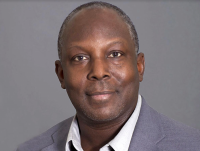September 17, 2021

The novel mayoral preliminary was an important milestone in the politics of Boston and should be celebrated. Still, it was painful to watch the Black political class of Boston feign enthusiasm for the outcome of the historic election.
No doubt the results left a bitter taste in the mouth of its politicians and community. And for many, the run-off between two candidates, City Councillors Michelle Wu and Annissa Essaibi George, touted by the media as “women of color,” is cold comfort. Many African American residents are familiar with the bias of “colorism” – the often unconscious social preference for individuals with light skin tones.
Yet, the reality is the Black political class has only itself to blame for the humbling results. The three candidates in the preliminary – and by extension the community organizations that divided over their campaigns – failed to take seriously the history of Black exclusion from power and the unique opportunity inherited this time.
Instead, Acting Mayor Kim Janey, Councillor Andrea Campbell, and former economic development chief John Barros decided to follow the playbook of staging redundant individual campaigns. The approach is more appropriate for opponents from more privileged communities – and a luxury that the Black political class can ill-afford.
They fell victim to a flawed understanding of their role in the political system that historian Harold Cruse identified as “The Crisis of the Negro Intellectual.” The crisis that Cruse described in his 1967 tome involved the reluctance of Black leadership to appreciate the pitfalls of a liberal agenda and individualistic strategies. He argued on behalf of developing strategies of group political and economic unity as an instrument of empowerment in a pluralistic American society.
The Black candidates in the preliminary appeared to suffer from a contemporary version of such short-sightedness. They appeared to be swayed by associations with liberal groups – and placed an emphasis on a progressive agenda that inadequately speaks to the cultural and spiritual needs of their community.
In doing so, the candidates ignored the history of unrequited Black aspirations in Boston politics and failed to learn from the model of unity politics that propelled the Irish Catholic political class for generations.
Adding to the confusion was the prominent former police commissioner, William Gross, touting a candidate from outside of the culture, Essaibi George. So, is it any surprise that the 20 percent Black voter base was badly splintered? Now the community finds itself in the familiar position of being on the outside of executive power looking in.
However, all may not be lost if the Black political class is up to the challenge of asserting the influence of its base. There is a small chance to flip the script of the preliminary election.
More than likely, the preliminary’s winners, Wu and Essaibi George, will split the votes of liberals and white voters in the general election. This still leaves the Black and Hispanic communities without an authentic representative in the contest. The void creates an opportunity for a well-known Black candidate to be competitive with the support of a unified base, and outreach to the Hispanic community, among others.
For that reason, either Kim Janey or Andrea Campbell should consider initiating a “sticker campaign” for mayor. They owe it to the nearly 45 percent of voters that supported the three African American candidates in the preliminary. Understand that with the changing demographics of Boston, this election may be the last chance for the Black community to elect one of its own as mayor.
Roger House is an associate professor of American studies at Emerson College and author of "Blue Smoke: The Recorded Journey of Big Bill Broonzy,” a book about Chicago blues artist William Broonzy.
Topics:



